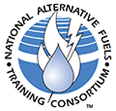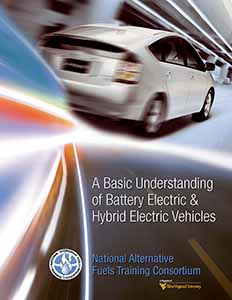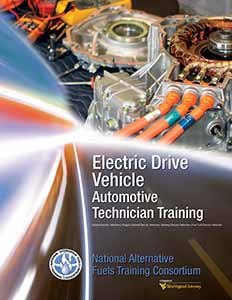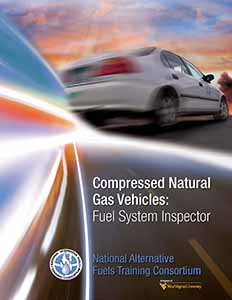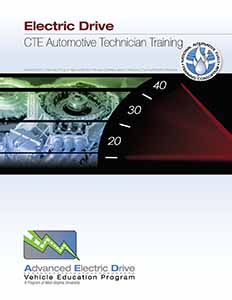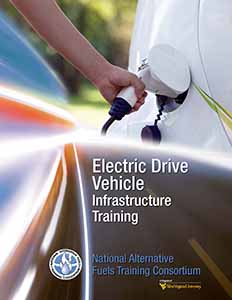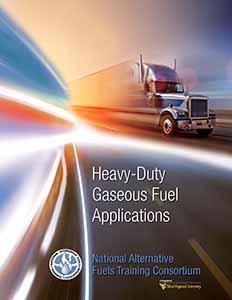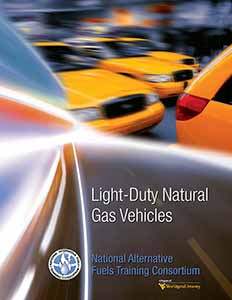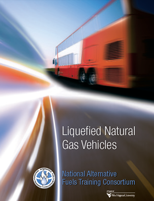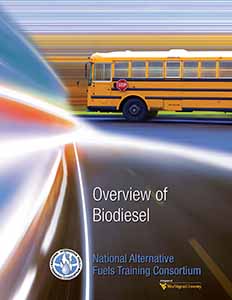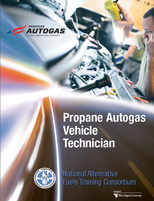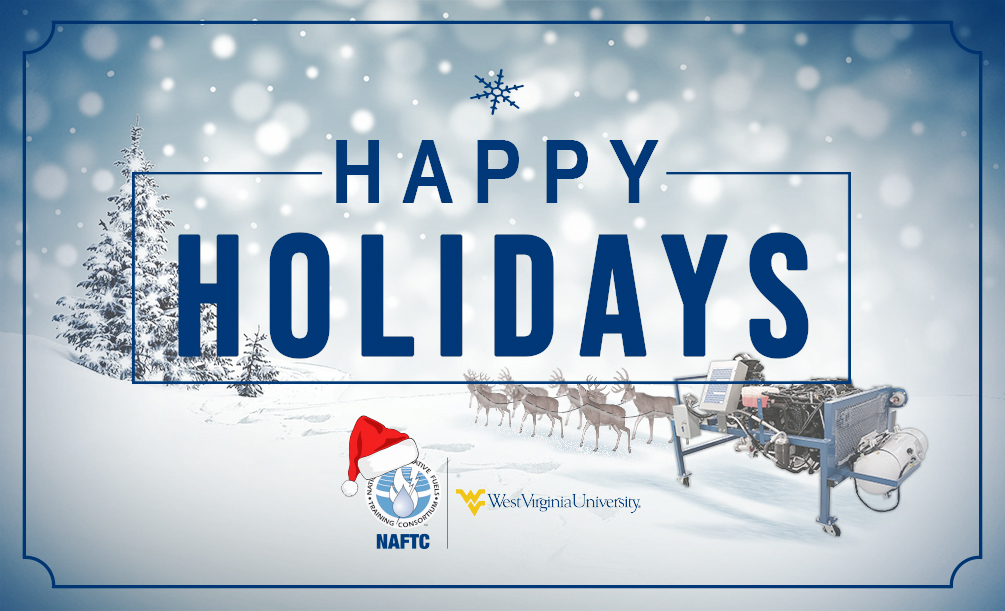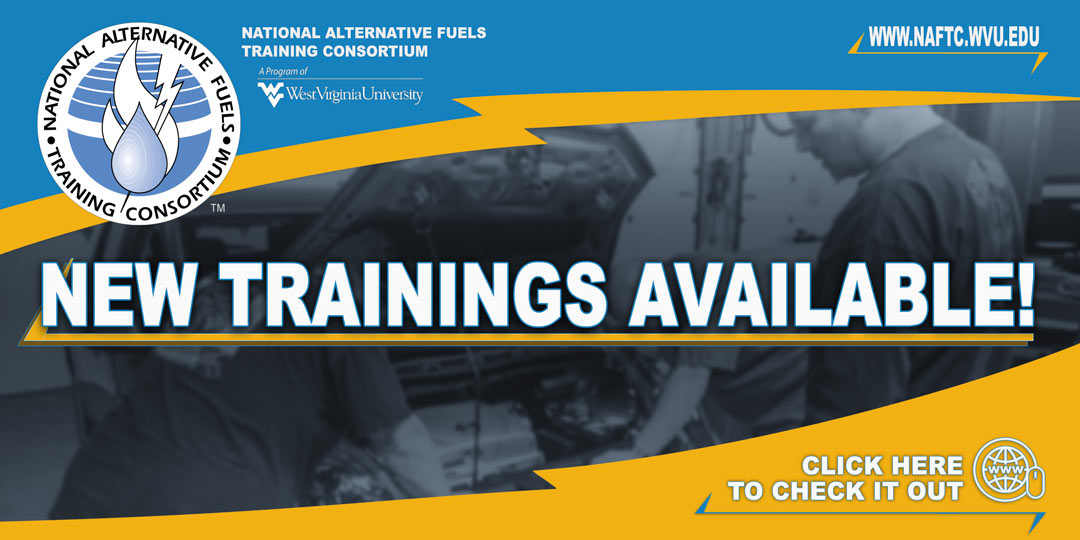NAFTC Curriculum Manuals Catalogue
Participant Manual – ISBN 978-1-933954-30-2
Page: 234
This manual focuses on the basic concepts of battery electric vehicles. The number of electric and hybrid vehicles is growing every year. Mandates such as the federal Energy Policy Act and the California Federal Pilot Program require most large fleets to include alternative fuel vehicles (AFVs) in ever-growing numbers. All of this means that the demand for AFV technicians is increasing dramatically. The AFV technician needs to know everything that is currently applicable to battery-electric and hybrid-electric vehicles, along with new technology to deal with the batteries, electric motors, controllers, and auxiliary equipment.Inquire about this item! click here to submit an order request via e-mail to Cristina.Dumitrescu@mail.wvu.edu or call Trina Wafle at (304) 293-7882.
Participant Manual – ISBN 978-1-933954-55-4
Page: 344
This Manual helps participants understand electric drive vehicles and how they operate differently from conventionally-fueled vehicles. Participants will learn how to safely maintain hybrid electric and electric drive vehicles. The information covered in the course has helped participants pass the ASE L3 certification test. The number of electric drive vehicles is growing every year. Mandates such as the Federal Energy Policy Act require most large fleets to include alternative fuel vehicles (AFVs) in ever-growing numbers. In addition, many consumers have chosen electric drive vehicles.Inquire about this item! click here to submit an order request via e-mail to Cristina.Dumitrescu@mail.wvu.edu or call Trina Wafle at (304) 293-7882.
Participant Manual – ISBN 978-1-933954-10-3
Page: 328
This manual helps participants obtain a solid foundation of information about alternative fuels, alternative fuel vehicles, and advanced technology vehicles. Through this course, participants gain the ability to discuss different alternative fuel technologies, fuel prices, and how they are affected by national and international events. Unstable fuel prices, coupled with concerns for the environment and air quality, have led many Americans to seek information about alternatives to gasoline, diesel fuel, and other petroleum-based products.Notify me! Click here to be notified when this course will be conducted next.
Participant Manual – ISBN 978-1-933954-12-4
Page: 174
DESCRIPTION: learn how to safely inspect CNG components to NFPA 52 code, provides information to help pass the CSA Fuel System Inspector exam, and teaches participants to recognize unsafe vehicles. Participants will gain an understanding of regulations needed to inspect CNG components on a conversion, learn what documents to study to be compliant with local and national laws. Understanding the different types of issues that can occur in regards to pressure relief devices. It is best to take this course after taking the Light-Duty Natural Gas or Heavy-Duty Natural Gas training. Participants who have taken this training have an excellent record of passing the CSA exam. Today there are more than 15.2 million natural gas vehicles (NGVs) in use. These vehicles use CNG cylinders, which along with system components, require periodic inspection, creating a demand for certified inspectors. Current standards require visual inspection once every three years or 36,000 miles over the life of the container. Good shop practice recommends a more frequent general inspection. The inspector needs to know what to look for, how to visually inspect, and how to determine whether the cylinder is safe.Notify me! Click here to be notified when this course will be conducted next.
Participant Manual – ISBN 978-1-933954-57-8
Page: 344
Inquire about this item! click here to submit an order request via e-mail to Cristina.Dumitrescu@mail.wvu.edu or call Trina Wafle at (304) 293-7882.
Participant Manual – ISBN 978-1-933954-30-1
Page: 254
This Manual helps participants understand who has the authority to make decisions regarding jurisdiction, differentiate applied voltage and amperage versus supply equipment charging capacities, and understand electric vehicle supply equipment (EVSE), battery capacity, and charge time. The introduction of electric drive vehicles requires a unique infrastructure that includes specialized charging equipment and adequate electric service. Electric vehicle (EV) infrastructure is a carefully planned network that safely allows electricity to flow from a designated power source to an electric vehicle. The installation of electric vehicle infrastructure is an essential component for the sustainability of the electric vehicle market.Inquire about this item! click here to submit an order request via e-mail to Cristina.Dumitrescu@mail.wvu.edu or call Trina Wafle at (304) 293-7882.
Participant Manual – ISBN 978-1-933954-14-0
Page: 466
Inquire about this item! click here to submit an order request via e-mail to Cristina.Dumitrescu@mail.wvu.edu or call Trina Wafle at (304) 293-7882.
Participant Manual – ISBN 1-933954-13-2
Page: 516
Inquire about this item! click here to submit an order request via e-mail to Cristina.Dumitrescu@mail.wvu.edu or call Trina Wafle at (304) 293-7882.
Participant Manual – ISBN 978-1-933954-15-9
Page: 492
Inquire about this item! click here to submit an order request via e-mail to Cristina.Dumitrescu@mail.wvu.edu or call Trina Wafle at (304) 293-7882.
Participant Manual – ISBN 978-1-933954-11-6
Page: 134
DESCRIPTION This manual Provides participants information about how to switch from diesel to biodiesel for personal use and develop an excellent understanding of the theory and process of how to make biodiesel. This course is suited for automotive instructors or anyone who is interested in using biodiesel. Any diesel engine after 1994 can use biodiesel as a fuel. This course describes engine systems, biodiesel blends, and biodiesel production. The ASTM D6751 standards will be discussed in great detail, as will the benefits and drawbacks of biodiesel technology. When taught at selected locations, this course also includes a demonstration of fuel-making equipment. Course materials provided: Includes review questions and learning activities Each module of the Participant’s Manual contains text, illustrations, explanatory figures and tables, module review questions, and a list of key terms and abbreviations Course designed for: Government Officials / Decision Makers Code Officials / AHJs Construction / Contractors Automotive Technicians Fleet Managers Secondary Education Post-Secondary Education General Consumers This Participant manual contains 144 pages.Inquire about this item! click here to submit an order request via e-mail to Cristina.Dumitrescu@mail.wvu.edu or call Trina Wafle at (304) 293-7882.
Participant Manual – ISBN 978-1-933954-17-2
Page: 422
Inquire about this item! click here to submit an order request via e-mail to Cristina.Dumitrescu@mail.wvu.edu or call Trina Wafle at (304) 293-7882.
